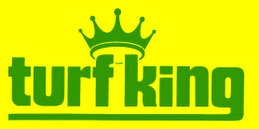Weeds have the ability to grow in some unlikely spots. We don't want weeds to grow in our lawns and we go to great lengths to keep them out and away from our tidy green patches of "our turf."
With the new Cosmetic Pesticide Ban now in place in Ontario, people are looking for ways to control weeds not only in their lawns but in other places as well. The shelves of the garden centres and hardware stores had to be empty of any of the banned pesticides by April 22, 2009.
Soon after the ban, I went into one national retailer to see what was on the shelf. No lawn weed killers but a rack with a couple hundred bottles of Roundup which contains glyphosate. Now in Ontario, glyphosate is the only active ingredient that is allowed to be used for "proscribed" uses. This includes uses such as controlling poison ivy, since this would be for health and safety and not cosmetic reasons.
I bought a bottle just to see if anyone would stop to tell me that the only place I could use the Roundup was on poison ivy. Using it to kill weeds on my driveway or on my patio would be illegal. (you wouldn't want to use glyphosate on your lawn as it is non-selective and will kill both weeds and lawn grasses.) No one stopped me or cared that I was buying Roundup. It wasn't until I left that store that I looked at my cash register tape, and there was a small note telling me to go to the provincial website to find out where this product could be used. Fine time to tell me after I bought the product.
You can buy vinegar type products in the stores now. They are basically acetic acids of varying strengths. The ready to use product is about 6% acetic acid, the household vinegar that you buy for your pickling is 5%. The packaged products may also include some citric acid to help with the weed control.
I have tried both vinegar and the packaged eco products. Both work quickly when it is sunny. Acetic acid will quickly blacken the leaves of your plants by removing the protective waxy coating on the leaves. The plant is more likely to have the leaves destroyed on a sunny day.
Acetic acid treatments work very quickly on the top part of the plant. Although grasses are less likely to be damaged, they will turn yellow and the tops will die. Fortunately, the grass will recover in about 2 weeks, 3 at the most.
Unfortunately, the weed roots are rarely destroyed, and many will regrow from the roots.
Similarly, you can use other household products to give similar effects. Household ammonia, another acid, will brown clover leaves, at least temporarily, while the lawn will recover. Baking soda is alkaline, and will create condition in the soil that make it harder to grow plants. Here the lawn is also affected.
In areas where no plants are desired such as along the driveway, a solution of water and salt will also kill off the top of the plants.
Any products that are used in these situations should be used with care and caution. Preparing, storing, and using homemade pesticides could pose risks to your health and the environment.
Please read Health Canada's article on Homemade pesticides.
If you
have a lawn/tree/shrub that needs some Tender Loving Care- get The KING OF
GREEN, the King of Lawn Care:
or call
us at 905.318.6677 or 1.888.TURFKING (887.3546)
If you
would like more information, please Contact us
Follow
us on Twitter http://twitter.com/turfkingofgreen
Join our
Facebook page
Copyright 2009
Turf King-Hamilton. All Rights Reserved.





No comments:
Post a Comment